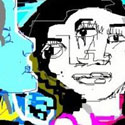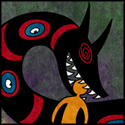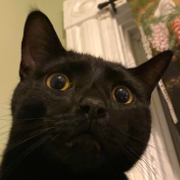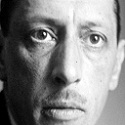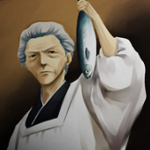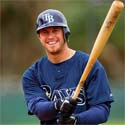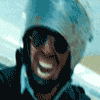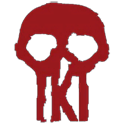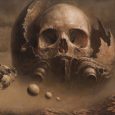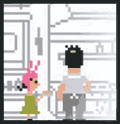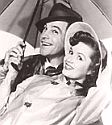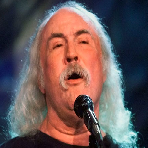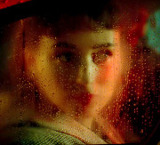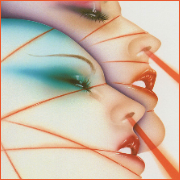|
Play chat: Enjoyed GB Shaw's Arms and the Man (its Shaw, its great), Caryl Churchill's Top Girls (being a successful career woman in the early 80s), John Osborne's Look Back in Anger (which was the genesis for the "angry young man" genre), Tomson Highway's Dry Lips Oughta Move to Kapuskasing and the Rez Sisters (Canadian, 90s, seminal Native works) - there is a lot to chose from. I'm going to try for Michel Tremblay's Les Belle Souers in French, with an English version to back up my spotty French language skills. On Waiting for Godot: For the love of all that is good and decent, this is not the greatest introduction to plays and playwrights. On the Importance of Being Ernest: the best suggestion for total newbies, great, funny, snappy, entertaining! Godot: existential and long and nothing happens because its existential and oh god if you aren't someone who loves analysis and not being entertained than you probably will not like this and may never read another play ever and I promise other plays are not like this!
|
|
|
|

|
| # ? Jun 6, 2024 12:37 |
|
Pretty much any Tennessee Williams play is great fun to read too. Maybe better than seeing a production because you do'nt have to sit through awful accents.
|
|
|
|
Falstaff feels like it should be way more entertaining than it is. The chapter where he molests a 12-year-old and is all jolly about it really disturbed me. Obviously it's not supposed to be an endorsement, but it sure put me off of reading the book for now. I'm gonna start reading The Dog Stars alongside.
|
|
|
|
Mahlertov Cocktail posted:Falstaff feels like it should be way more entertaining than it is. The chapter where he molests a 12-year-old and is all jolly about it really disturbed me. Obviously it's not supposed to be an endorsement, but it sure put me off of reading the book for now. If it makes you feel any better (and without saying too much, because it gives away later reveals that I feel are important to the book and to understanding Falstaff): he's lying. Spadoink posted:On Waiting for Godot: For the love of all that is good and decent, this is not the greatest introduction to plays and playwrights. On the Importance of Being Ernest: the best suggestion for total newbies, great, funny, snappy, entertaining! Godot: existential and long and nothing happens because its existential and oh god if you aren't someone who loves analysis and not being entertained than you probably will not like this and may never read another play ever and I promise other plays are not like this! Shakespeare was brought up, so I made that suggestion on the assumption that the reader was familiar was familiar with what is often considered Literature. If the reader is challenging themselves to get away from genre fiction, then yeah, don't start with Waiting for Godot. That said, I only began reading plays in earnest when I was halfway through an English major, so to be completely honest, I have no idea what would be considered good introductory plays. 
|
|
|
|
I'm lame as heck and only keep up with these for like 15~ books a year BUT THIS YEAR IS DIFFERENT! Because I will set the bar lower and lower. Gonna go for a cool 22 books. I'll try to hit a bunch of different categories by picking some stuff from Stravinsky's list, but I don't want to tie myself to that because I have a couple of other books I want to read, including finally just reading stuff I really want to read, including a bunch of plays and some history books written by professors I really like LETS DO THIS!!! :/ I do feel bad that I have not read anything yet this year, feels gross man.
|
|
|
|
GenericGirlName posted:I'm lame as heck and only keep up with these for like 15~ books a year BUT THIS YEAR IS DIFFERENT! Because I will set the bar lower and lower. Gonna go for a cool 22 books. I'll try to hit a bunch of different categories by picking some stuff from Stravinsky's list, but I don't want to tie myself to that because I have a couple of other books I want to read, including finally just reading stuff I really want to read, including a bunch of plays and some history books written by professors I really like LETS DO THIS!!! :/ I do feel bad that I have not read anything yet this year, feels gross man. I believe in you
|
|
|
|
Blind Sally posted:If it makes you feel any better (and without saying too much, because it gives away later reveals that I feel are important to the book and to understanding Falstaff): he's lying. Interesting. I wasn't gonna give up on it, it just put a damper on my momentum with the book.
|
|
|
mdemone posted:This year, in addition to breaking the century mark, among those books will be The Recognitions, Finnegan's Wake, and V. So that's my challenge. Started with Gaddis on New Year's Day and still making progress. Oughta set me back pace-wise to start the year though. Books read: 2/100 1) 300,000,000 - Blake Butler. Written from the (very insane) perspective of a mass murderer living in a house that is not quite only a house, interspersed with the deteriorating story of the detective who investigates the killings. The tag line is "The good thing about deciding to kill everyone in America is that you can start with anyone in America." Which is a decent enough grabber, and the prose is very stream-of-consciousness, although done pretty well. The problem is, that's all it is. It reads like a crazy person wrote it, and that's a good/bad thing. I would suggest leafing through it in the bookstore if you are interested -- open up the last third or so of the book (don't worry, you won't understand enough to be spoiled), and realize that the whole thing is written that way. Well-nigh unreadable in parts, and practically inspired in others. This book could have been much more than it was. I recommend picking it up in a used bookstore if the New Weird is your thing, but if nothing I said sounds good to you, then stay away. 2) Blindsight - Peter Watts. This is a re-read, because it's one of my favorites over the last few years. This is my third time through it and I think probably the last, as I've finally squeezed everything out of it that I'm going to get. Still unequivocally recommended though, to all SF fans and even people who don't usually read SF -- it's that strong. Now I'm still grappling with Gaddis and also sparring with Sloterdijk -- I may have been too eager with my goal of 100, if I'm going to keep reading doorstops in philosophy and postmodernism.
|
|
|
|
|
Sodacan told me about this sweet challenge. I've really fallen behind in reading since becoming a ~professional office worker~. I have unread books I need to get out of the way! I'm going to read 24 books this year. Of special note, I am finally going to complete that goddamn Infinite Jest. Currently reading Foucault's Pendulum and From the Tree to the Labyrinth.
|
|
|
|
mdemone posted:1) 300,000,000 - Blake Butler. Written from the (very insane) perspective of a mass murderer living in a house that is not quite only a house, interspersed with the deteriorating story of the detective who investigates the killings. The tag line is "The good thing about deciding to kill everyone in America is that you can start with anyone in America." Which is a decent enough grabber, and the prose is very stream-of-consciousness, although done pretty well. The problem is, that's all it is. It reads like a crazy person wrote it, and that's a good/bad thing. I would suggest leafing through it in the bookstore if you are interested -- open up the last third or so of the book (don't worry, you won't understand enough to be spoiled), and realize that the whole thing is written that way. Well-nigh unreadable in parts, and practically inspired in others. This book could have been much more than it was. I recommend picking it up in a used bookstore if the New Weird is your thing, but if nothing I said sounds good to you, then stay away. Sounds a lot like Jim Nisbet's Old and Cold, which I loved, so now I'll have to read this. Also, If anyone wants to read a noir, stream of conscious novel from the POV of a schizophrenic murderer, I recommend Old and Cold.
|
|
|
|
I am really struggling reading Ulysses. I really enjoy the language, but I honestly can't tell what, if anything, is going on. Is that a problem? Should I resort to reading Sparknotes after I finish a section?
|
|
|
|
If I recall there's no real plot to Ulysses. It's a meditation on a day in the life.
|
|
|
|
Book 5 - Adolf Hitler: My Part in his Downfall by Spike Milligan - A reread, this still remains one of the funniest books I have ever read. This book covers the time of Spike's joining the Royal Artillery at the outbreak of WW2 until their landing at Algiers. I didn't understand why Spike was so well-regarded until reading this book and the following volumes but since then I have been a huge fan of his. I tend to re-read these books every few years and I cannot see myself ever getting tired of them, apart from the last one or two which cover the period after the war ended and aren't as interesting to me.
|
|
|
|
|
Namirsolo posted:I am really struggling reading Ulysses. I really enjoy the language, but I honestly can't tell what, if anything, is going on. Is that a problem? Should I resort to reading Sparknotes after I finish a section? HIJK posted:If I recall there's no real plot to Ulysses. It's a meditation on a day in the life. I've read it, cover-to-cover, once and bits and pieces for school. From my reading, it has much more to do with modernism as a movement and academia itself. Joyce talks about some of it in his letters but secondary readings, like spark notes, won't help clarify the book that much. It's a book that's supposed to be analysed in a classroom while mocking those who do, so yeah, no real plot. I personally would read it as a series of short-stories with Dedalus' thoughts as the common motif that links them together. Flip through and pick whatever catches your eye, highlight or mark your favourite passages/chapters and re-read the best bits. Unless your reading for an academic purpose, it's the best way to approach it IMO.
|
|
|
|
Stravinsky posted:I believe in you Update!: I have read one whole book, The Dog Stars, which I selected because someone mentioned it on this page and it seemed just the right length to kick off my reading with. This book upset me for many reasons loving jasper. And why was I tricked into not hating Bangley???? ugh but I enjoyed it very much. I might hunt around for more books by that author, but until then I will be moving on to my next story Hamlet. Funnily enough, in high school I read hardly any Shakespeare plays (Midsummer's Night Dream and Othello being the only two.) but I generally enjoyed them, especially Midsummer's Night Dream. I know Hamlet wont be as funny, but it will be worth reading, even if I spend most of the time thinking "Oh THIS is why everyone says The Lion King is Hamlet with lions!!!". Hopefully I can blast through it all this weekend? Who knows!!!
|
|
|
|
Book 6 - Puckoon by Spike Milligan - I had been meaning to read this for a little while now, I had read a couple of extracts in a collection and it seemed very good. The whole book was a little disappointing however. Whilst being mostly funny throughout it suffered from jarring passages with characters acting as the author's mouthpiece on matters such as abortion, architecture, etc. Overall I'd say it was entertaining and has plenty of funny, quotable lines, but it isn't very focused and seems more like a collection of sketches than an actual novel.
|
|
|
|
|
First update on the booklord challenge here we goooooo. 1-2. [Published in the Last 3 Months] The Way into Magic and The Way into Darkness by Harry Connolly - These two books are the last two in a trilogy released all at once with kickstarter money funding the publishing costs. Overall, the series was pretty good. The protagonists characters felt strong and realized, and the world was full of fun and interesting ideas. My only problem with the series was that the plot itself felt very rushed. The amount of content and "worldbuilding" was vast and crammed so tightly that there simply wasn't enough page space to devote to a proper amount of idea exploration. So, the plotting was brisk and skimmed constantly past intersting places and, cultures, and elements that should have been more deeply explored. Still a fun read, but a little disappointing to show so little, so often. 3. [History] The Disappearing Spoon by Sam Kean - I was originally just gonna read this to add to the tally, but it turned out to be a pop-sci history of how each element on the periodic table was discovered, and by whom. The stories and science were interesting, but for some reason Sam Kean's style of writing put me off a little. There was an odd mix of narrative flippancy juxtaposed with heavy jargon that made it difficult to determine exactly who this book was for. (Answer: Everyone? As many people as possible?) 4. [Postmodern] The Amazing Adventures of Kavalier & Clay by Michael Chabon - This was on a postmodern reading list, and though I'm not 100% sure it belongs there, I'm using it for mine. I loved this book. I'm a real sucker for multi-layered narratives with strong, consistant themes and Chabon delivered. I find his prose, even in scenes of despair and tragedy, extremely warm and comforting. I'm not sure why this is, but I felt the same during the Yiddish Policemen's Union. Chabon, I find, is also an excellent source of Jewish-American culture and experience, which is not a subject I am often subjected to. 5. [Philosopy] The Prince by Niccolò Machiavelli - I went into this, of course, with preconceptions and expectations. It's not everyone whose name becomes an adjective. I was surprised, however, at how unshocking I found his work to be. Maybe this speaks ill of me, but the notion that deceptive shitheads with good PR departments can be adept at winning and maintaining positions of power did not seem to be a particularily novel idea (even for the time). Machiavelli strikes me as a man of keen observational skills and an ability to separate the moral behaviour of successful "princes" from the expected moral behaviour of normal men in their personal lives. He never advocates cruelty for it's own sake, but simple declares that cruel or evil behaviour in a "prince" can be more effective than its inverse, provided that such cruelty is never made obvious and clear to onlookers. All in service of a sort of greater good, ends justifying means, can't make an omelet without breaking a few eggs kind of mentality. It's been difficult to get all my thoughts on this compressed into a single mini-review for a forum challenge. I've already spent a few late nights mulling it over in bed. I ended up reading up on Machiavelli interpretations quite a bit, and eventually found: 6. [Essay] A Special Supplement: The Question of Machiavelli by Isaiah Berlin - This essay from the early 70s discusses how a single work could result in such a wide variety of interpretations from such a large number of respected philosophers. It helped immensely in firming up what I'd just read, and clarifying the nuance in interpretations of Machiavelli's work. http://www.nybooks.com/articles/archives/1971/nov/04/a-special-supplement-the-question-of-machiavelli/
|
|
|
|
GenericGirlName, I'm not gonna quote you because I'm not done with the book yet, but I already agree about The Dog Stars. Hig's love of life is simultaneously the book's most hopeful and heartbreaking aspect so far (I'm about 1/4 of the way through). I love it a lot up to now!
|
|
|
|
1: Cryptonomicon by Neal Stephenson gently caress me it doesn't usually take me more than a few days to get through a book, let alone nearly a month. To get this out of the way, right at the start... I feel like this book desperately needed a date with a good editor. It was self-indulgently, effusively long with a lot of meandering random and unnecessary sidetracks - the Van Eck phreaking scene in the hotel in particular just... felt completely pointless. Well,, the scene was needed to explain the concept to the uninitiated reader, but the following chapter during which a side character's computer was read felt entirely tacked on. With that out of the way, I did enjoy it. I'm not sure I really understood it, but I did enjoy it. I vaguely understand the concepts of cryptography, but the practice and the actual maths are beyond me. I felt like this put it at least into reach for me. And the story was interesting, albeit a little too meandering and again, long. I'm not a fan of the split modern-and-historical thing, either - it takes some of the tension out of Goto Dengo's scenes in particular to have Goto corp so obviously namedropped early on. That might be on purpose though, I don't know. And similarly, I have a bit of an issue with Qwlghm or however you spell it. It's a silly, silly concept that feels like it's trying to be funny and failing. Overall, it was a book I would have enjoyed more if it had eaten fewer of my lunch breaks with interminable random sidetracks. Stephenson writes well when he gets going but as with many of his other books, I feel that this would have been improved if he had left more out. And I'm very glad I was reading an ebook, as I suspect it's of a size with Anathem, which gave me RSI holding it up. 2: will be Irrationality by Stuart Sutherland, probably. One of my Christmas presents. I should note that I'm also keeping up with Pact by Wildbow, which will probably finish this year and which I will count as a book when it does. thespaceinvader fucked around with this message at 10:12 on Jan 25, 2015 |
|
|
|
SwimGood posted:I've read it, cover-to-cover, once and bits and pieces for school. From my reading, it has much more to do with modernism as a movement and academia itself. Joyce talks about some of it in his letters but secondary readings, like spark notes, won't help clarify the book that much. It's a book that's supposed to be analysed in a classroom while mocking those who do, so yeah, no real plot. It definitely has a plot, although you could certainly read individual chapters on their own and still enjoy them. I found that the best way for me to approach the book was to just read it through and not get too bent out of shape if I missed a reference or didn't understand something. That said, there are a lot of guides out there that may be helpful. I've heard good things about The New Bloomsday Book. My favorite chapter was probably the Sirens, but the whole thing was wonderful, definitely worth the effort. Namirsolo posted:I am really struggling reading Ulysses. I really enjoy the language, but I honestly can't tell what, if anything, is going on. Is that a problem? Should I resort to reading Sparknotes after I finish a section? If you are at the second section of the book, where Stephen is walking on the beach, that's probably the hardest to follow in the book. The next chapter, where Bloom is introduced, is much easier to follow.
|
|
|
|
1. Oxford History of the French Revolution by William Doyle. I chose this one as the revolutionary period is pretty highly contested history (it obviously matters a lot to various political ideologies), and the general sentiment of the book was that it made a fairly good attempt at even-handedness. It was quite dry (a lot of the events of the period centred around law and constitutional reform) punctuated with episodes of extreme violence (the guillotine-ing paled in comparison to the putting down of royalist uprisings in Vendee - 400,000 of a population of 800,000 killed) from just about everyone involved. I had no idea the french actually elected Thomas Paine to the National Convention, he didn't even speak french. I also had no idea there was actually two revolutions in quick succession. Overall it was a good introduction, but a thorough one, so maybe not for casual reading. 2. The Fall by Albert Camus. Maybe this was not the best choice for a first book of Camus' to read (I have The Stranger queued up too), but I really enjoyed this one. It was very short, but had the effect of unfurling in your head after you read it. Strangely religious for an existentialist author, it seemed steeped in metaphors of baptism, confession, and christ. The main character was an unlikeable pompous womaniser (unlikeable on purpose I assume), which made reading the book a bit confrontational. I'm now reading Italo Calvino's If on a winters night a traveller which is awesome and clever and very meta (it starts describing you the Reader reading the book, and just goes off the rails from there). Then some more Camus. I also have a copy of The Brothers Karamazov waiting, but I'm not sure I'm up to it yet, it looks beastly.
|
|
|
|
I'll take your challenge and try to read 25 books. Right now I'm about finished with The Martian which is seriously not as good as the hype makes it out to be.
|
|
|
|
I'm in, going to try for at least 23 books - each category in the OP plus 1. So far this year I've read Kafka's The Trial and Jared Diamond's Collapse (#9 and #5). Currently reading Chang-rae Lee's On such a full sea. End of January edit: 3/23 5. History: Collapse - Jared Diamond (Hit and miss overall. I found the sections on Norse Greenland fascinating but some other sections were a drag to get through) 9. Something absurdist: The Trial - Kafka 11. Something on either hate or love: On Such a Full Sea - Chang-rae Lee (If you liked the Oryx and Crake series you'll probably like this too) Zekky fucked around with this message at 05:36 on Jan 31, 2015 |
|
|
|
PatMarshall posted:
I'm glad to hear that, because that is where I am. I'll just stick it out. Thanks for the advice, everyone.
|
|
|
|
January isn't over yet but I won't get another book finished before it is, so I'm posting my update now. I try to post summaries and thoughts and (not very good) reviews of everything I read on my Goodreads profile, so I may not speak as much about some books. 1. Oryx and Crake - Margaret Atwood (Challenge 2: Read a female author) An interesting take on a post-apocalypse scenario. This book could have also fit for the "Something post-modern" part of the challenge, given its structure of starting near the end and retelling the apocalypse through flashbacks. There are lots and lots of things about this story that could be discussed (playing god, the role of the mysterious woman, the odd take on the Hero's Journey, the value of arts vs science, etc), but what resonated most strongly for me was the way the characters and situations highlight the various facets of humanity. I really don't want to say much more about this as the only way to prove my point is to cite a lot of spoilery stuff; my GR review is spoilery but life's too short to worry completely about crybabies. If you like sci-fi and post-apocalypse stories, this is a good literary novel to try. I'll likely pick up the rest of the trilogy at some point though, from the ending, I'm somewhat afraid the rest may deviate into more standard stuff. Atwood is a smart and established author, though, so that assuages my fears a little. On a side note, I'm kind of surprised at myself that it took me this long to read one of her novels. I'm Canadian, and she's been part of our national fabric for my entire life, so I'm familiar with her and her work and yet never read any. Maybe I'll grab some other novels (not just the MaddAddam trilogy) as this year's challenge progresses. 2. The Blind Owl - Sadegh Hedayat, Translated by Naveed Noori (Challenge 10: The Blind Owl) This book is certainly an experience. I don't know if I really could, over even should, try to describe it. You should just experience it. The best summary I will attempt is that it's an excellent metaphor for the unrelenting drive to create, highlighting the repeated (but always subtly different) cycle highs and lows through which a creator is pushed and its ultimately all-consuming fire. I grabbed this as an ebook before Stravinsky had posted the link to Bashiri's translation, though in the long run I think having access to two versions will be beneficial. In the introduction to this version, Noori contends it is a more faithful translation as it was done directly from one of Hedayat's original mimeographed copies, whereas the older translations were based upon an inferior French translation, which itself was done by someone not fully familiar with Persian. Having never read any other translations - and I'm definitely not able to read the original - I have no idea if this version really is better or if this is just the translator trying to sell the book. Given its short length and the theme of subtly-variant-recursion, it's a delicious irony that I have the opportunity to read it again in a different way. 3. Red Harvest - Dashiell Hammett (Challenge 19: The colour red) A couple of years ago, when I wanted to keep up with the Awful Book of the Month, I read The Big Sleep and enjoyed it. I was familiar with the themes and style of hard-boiled fiction from tv and movies, but it was the first actual book I had read in the genre. I had wanted to read more but never got around to it. When I was brainstorming for things which could meet the colour red challenge, I thought of this book through the shamefully geeky method of remembering it was the inspiration of 'Blue Harvest,' the production code name from Return of the Jedi. The book is a progenitor of the hard-boiled genre. It's actually four short stories, written for magazines, with the intention of telling a continuous story set in one dirty town. Due to this, it sometimes feels a bit disjointed, as it changes beats just a little too abruptly when the story transitions. There are also, at times, characters introduced and disposed of in short order - unavoidable in a story about a mob war in a dirty town - which feels a little frustrating when you're trying to follow the plot beats. The plot isn't the big draw for this book, though - the characters are. Especially the main character, Hammett's Continental Op, a private detective with a floating sense of ethics when it comes to getting results. There's not much more to say; it was written when the genre was being formed, so it uses all the cliches because it was part of what made them cliches in the first place. Currently reading: Words of Radiance - Brandon Sanderson I just started this last night. So far it's exactly what I expected, which is a good thing.
|
|
|
|
Starting off a month late but I'm interested in the challenge. I'll be aiming for 52 books as well as meeting the other requirements as well. Here's where I stand currently on the list: 1. The vanilla read a set number of books in a year. 52 2. Read a female author: Outlander by Diana Gabaldon. I'm always interested in historical fiction and despite the contrivance of the protagonist coming in from the 1950's, I treated the book mainly as such. I had little to no knowledge about Scotland during this time period and the upcoming battle started by the Jacobites against the English as being one of the major causes of the end of the feudal clan system made her treatment of its workings quite fascinating. I enjoyed the book but after seeing what the further books entailed, I declined to progress since I don't need more views of pre-revolutionary Americana. 3. The non-white author: From Seed to Harvest by Octavia Butler. Butler has always gotten solid support from this forum and when her omnibus came on sale, I decided it was a good time to grab it and try her writing out. I enjoyed Wild Seed quite a bit and this enthusiasm carried me through Mind of My Mind as well. I stopped after the first chapter of Clay's Ark since I need a break from a growing sense of desperation that the book communicated to me but the parallels of telepathy v. mutes in regards to racism was well crafted and I will be finishing the series this year for sure. 4. Philosophy 5. History 6. An essay 7. A collection of poetry 8. Something post-modern 9. Something absurdist 10. The Blind Owl (Free translation if your ok with reading on a screen or cant find a copy!) 11. Something on either hate or love 12. Something dealing with space 13. Something dealing with the unreal 14. Wildcard (Some one else taking the challenge will tell you what to read) 15. Something published this year or the past three months: Firefight by Brandon Sanderson. I needed something quick and fun to read after Butler so I enjoyed the first novel of this series and tried out the second book. As before, I find Sanderson's need to rename major cities as a bit of flavor text like his insults but it's still grating and unnecessary. The magic/Epic system in this book becomes more developed and the characters gain more background. I had a fun time with the book, it doesn't pretend to be anything that it isn't and it's fairly light. 16. That one book that has been sitting on your desk waiting for a long time 17. A play 18. Biography 19. The color red 20. Something banned or censored 21. Short story(s) 22. A mystery: World of Trouble by Ben H. Winters is the third and final book his meteor Doomsday series. I was afraid that Winters would ruin the general air of despair and melancholia that he manages to write so convincingly into the book by pulling some solution out of his rear end but he sticks with it to the bitter end. This is another mystery set in the last days of the world so the main character's dogged insistence on giving a poo poo where it really won't matter in another couple of days is the larger mystery. If one has read the first books, this is a dark but nice and thematic end to the series. -- Fives and Twenty-Fives by Michael Pitre is based on the author's experiences of serving in the Second Gulf War. I believe that with the current media focus on American Sniper, this book talks about the reality of the utter bullshit surrounding America's forced intervention into Iraq based primarily on lies. The multiple viewpoints are well spread out but I wish the author had cut out the medic's perspective and had stuck with the officer and the Iraqi translator instead; the grunt's perspective doesn't bring that much to the table. Given how little the war is thought of in the US, I feel that this book is a good book to read. The Help by Kathryn Stockett is the basis for the similarly titled movie about Mississippi racism and class consciousness in the '60s. Characters are well developed and the plot is fine and we get a lot more viewpoints that the movie cuts out, such as Minny's dual liberation from racism as well as domestic violence. It's a very solid book and while it doesn't add anything novel to the narrative, it's a pleasure to read. Currently at 7/52.
|
|
|
|
So my first book turned out not to be a female author, largely because I was already reading a book. Wind Up Bird Chronicle did not in the end challenge me, but I found it thoroughly entertaining. Its tendency to drop characters, almost without notice, was sufficient to take it out of the normal and pique my interest, but most of all was the snippets of character that were slipped into almost as a sideline. Ultimately this was a book about guilt and suffering, and just surviving until either you got through it or died. This applied to the human level (sleeping without someone other than your partner) to a national shame (Japanese suffering post WWII), and it touched me very much. Finishing off a couple of outstanding books before embarking on my first authentic challenge book.
|
|
|
|
Here we go. 1. The Bone Clocks, David Mitchell. 5/5. Really loved this book and the way the entire story was presented. One could argue that it was a bit gimmicky to wait until the end to turn the book into a war between a bunch of immortal vampire psionicists, but on the other hand, if you're reading this and think that sounds corny, exactly how did you become a goon? 2. The Martian, Andy Weir. 2/5. Booklord Challenge 1 completed: Read a book about space. This could've been a lot better. The premise is great - an American astronaut is left stranded but alive on Mars after a freak accident during a manned mission to the Red Planet. How will he survive? Well, he figures things out pretty quickly and the tension dissipates once you hit the second half. The crudely-developed protagonist has a working solution for everything Mars throws at him, jury-rigs equipment to suit his needs, and tends to be in just the right place at the right time to scoop up any number of convenient deus ex machinas. This is Andy Weir's first novel and it shows. Cheeseball dialogue throughout and the main character starts coming off like an android after a while. Meh.
|
|
|
Argali posted:2. The Martian, Andy Weir. 2/5. Booklord Challenge 1 completed: Read a book about space. This could've been a lot better. The premise is great - an American astronaut is left stranded but alive on Mars after a freak accident during a manned mission to the Red Planet. How will he survive? Well, he figures things out pretty quickly and the tension dissipates once you hit the second half. The crudely-developed protagonist has a working solution for everything Mars throws at him, jury-rigs equipment to suit his needs, and tends to be in just the right place at the right time to scoop up any number of convenient deus ex machinas. This is Andy Weir's first novel and it shows. Cheeseball dialogue throughout and the main character starts coming off like an android after a while. Meh. It was initially posted in a serial fashion to his blog, so the construction problems were kind of baked in when it started to become a novel for print.
|
|
|
|
|
I'm going to take the challenge too. 1. The vanilla read a set number of books in a year. I'm a go with 40. 8. Something post-modern Thomas Pynchon - Bleeding Edge This book was really cool and good. Pynchon is infamous for being really dense and difficult (which he is even in easier works like this one), but he's also really funny. It's really good, to me, that a 75 year old man knows so much about video games and lovely movies, also. I give it a solid 4/5. 13. Something dealing with the unreal Milorad Pavic - The Dictionary of the Kazhars I read this since lots of ppl with good opinions talked about it a bunch. I just read it straight through, which is probably the wrong way to read it!! It starts out really slowly, and reads like a weird po-mo set of folktales, which is neat but lacks umm like a forward narrative progression. Once you get to the end though, there are lots of cool connections that you start to make, and it gets really exciting. another solid 4/5. 22. A mystery Patrick Modiano - Missing Person This is a sorta detective novel about a dude who works for a detective agency in Paris in the 1960's maybe? Guess what though??? The main character doesn't even know who he is! So the detective agency closes down, and the main character uses his detective skills to figure out his past. Maybe there was a wife, and a daughter, and the french resistance during the Nazi occupation, I'm not telling though. Modiano won the Nobel last year, which is why I read this. The prose is somber and sad, check out this passage: quote:Strange people. The kind that leave the merest blur behind them, soon vanished. Hutte and I often used to talk about these traceless beings. They sprung up out of nothing one fine day and return there, having sparkled a little. Beauty Queens. Gigolos. Butterflies. Most of them, even when alive, had no more substance than steam which will never condense. Hutte, for instance, used to quote the case of a fellow he called "the beach man." This man had spent forty years of his life on beaches or by sides of swimming pools, chatting pleasantly with summer visitors and rich idlers. He is to be seen, in his bathing costume, in the corners and backgrounds of thousands of holiday snaps, among groups of happy people, but no one knew his name and why he was there. And no one noticed when one day he vanished from the photographs. I did not dare tell Hutte, but I felt that "the beach man" was myself. Though it would not have surprised him if I had confessed it. Hutte was always saying that, in the end, we were all "beach men" and that "the sand" - I am quoting his own words - "keeps the traces of our footsteps only a few moments" Very good and moving, which is why I'm giving this book my best rating, a solid 4/5. so that's 3/40.
|
|
|
|
Going for 52 books, 3 down so far - The Peripheral by William Gibson, Station 11 by Emily St. John Mandel, and The Disaster Artist by Greg Sestero. About halfway through St. Leibowitz and the Wild Horse Woman as well. That covers a female author and a book published in the last 3 months, so far. Anyone want to throw me a wildcard? I'm going to stop reading sci-fi genre fiction for a while after I finish Leibowitz 2.
|
|
|
|
my bony fealty posted:Going for 52 books, 3 down so far - The Peripheral by William Gibson, Station 11 by Emily St. John Mandel, and The Disaster Artist by Greg Sestero. About halfway through St. Leibowitz and the Wild Horse Woman as well. That covers a female author and a book published in the last 3 months, so far. I, Claudius by Robert Graves.
|
|
|
|
OK, I'm a philistine. I have finished off Brothers Karamazov (been on a slow burn for quite a while, bit of a cheat to include it I suppose). Talk about torture. I know that the characters are all symbols representing theological points etc etc, but that middle 700 pages of interminable familial wrangle was unbearable. There were some beautiful treasures there (Zosima's story, the finger biting boy, the epilogue) but bugger it, I hated it. Having said that, now I've done the story and can put it aside, I'm interested in going back and exploring the characters, particularly Ivan. 1. 2 Books. Wind up bird chronicle Brothers Karamazov No challenges completed!
|
|
|
|
Off to a good start Added links for longer reviews that are going to clog up the page otherwise. Leaves of Grass (1st edn) - Walt Whitman The Virgin Suicides - Jeffrey Eugenides Frankenstein - Mary Shelley The Heart is a Lonely Hunter - Carson McCullers Writing Down the Bones - Natalie Goldberg Better than good, but not quite great. None of the advice is particularly mind-blowing or something I haven't heard a dozen times before, but it was still useful to hear again. I'd say the biggest draw of the book is the sheer amount of enthusiasm and motivation Goldberg made me feel after reading a few chapters at a time. Would have been helpful to finish this back in november for nanowrimo as I'd originally intended, but better late than never. The Virgin Suicides and The Heart is a Lonely Hunter were the definite stand-outs for this month. The Virgin Suicides was brilliant, but I've noticed I came away with a pretty different interpretation of the story compared to other people that loved it too. It seems to partly come down to how creepy you found the obsessive viewpoint characters, and how nostalgic you found the setting to be. I didn't find it nostalgic and I thought the viewpoint characters were creepy in the extreme so for me the whole thing came off as a critique of the mysterious dead girl trope and not some ode to old days passed. The Heart is a Lonely Hunter was crushing in the best way. Apparently the rest of her output isn't as good, but I've heard promising things about The Member of the Wedding so I'll be keeping an eye out for that.
|
|
|
|
Late to the thread, but my goal is 25 books read this year. Had set this goal for myself on the 1st and I'm already at 5 books completed. - I wasn't really dedicated last year and only read a measly 17 books. I've decided to step it up this year and hope to continue this form for the future. Feel free to add me on Goodreads Tzen fucked around with this message at 07:32 on Jan 28, 2015 |
|
|
|
Aphra Bane posted:The Virgin Suicides was brilliant, but I've noticed I came away with a pretty different interpretation of the story compared to other people that loved it too. It seems to partly come down to how creepy you found the obsessive viewpoint characters, and how nostalgic you found the setting to be. I didn't find it nostalgic and I thought the viewpoint characters were creepy in the extreme so for me the whole thing came off as a critique of the mysterious dead girl trope and not some ode to old days passed. The Virgin Suicides was probably one of my favorite books that read in 2013. I was surprised by how easy it was to read and loved the fact that the entire story was told by a bunch of different narrators, which is something that everyone doesn't pick up on. I'm trying desperately to read The Marriage Plot, but it's hard to get into it.
|
|
|
|
screenwritersblues posted:The Virgin Suicides was probably one of my favorite books that read in 2013. I was surprised by how easy it was to read and loved the fact that the entire story was told by a bunch of different narrators, which is something that everyone doesn't pick up on. I'm trying desperately to read The Marriage Plot, but it's hard to get into it. Yeah, I was surprised as well at how easy to read it was. Everything flowed so well. It was hard to put down, actually. I haven't really looked into any of his other books yet, so I'll be interested to see what you end up thinking about The Marriage Plot. I suppose I should try to tackle Middlesex at some point too. I've heard pretty mixed reviews about it from the usual people I get my book recs from, but it seems to be his defining book.
|
|
|
|
Captain Vittles posted:1. Oryx and Crake - Margaret Atwood (Challenge 2: Read a female author) I'm nearly finished The Year Of The Flood. The structure is similar to Oryx and Crake, so much so that it is almost a reflection of the first novel. Only instead of Jimmy and Glenn, the perspective is told from two different characters--a couple of ex-God's Gardeners. Minor spoiler, as it becomes obvious right away if you've read the first novel and glanced at the book's synopsis on the inside cover, but one of the main characters is Jimmy's ex, Ren. It has been really enjoyable thus far, though I would recommend reading it sooner rather than later. It has been years since I've read the first book and now I'm struggling to remember details from it. Numerous events and characters who were key elements of Oryx And Crake show up here, but because the book takes place from different perspectives, their importance or their place is lost on me since I don't remember everything.
|
|
|
|
Blind Sally posted:I'm nearly finished The Year Of The Flood. The structure is similar to Oryx and Crake, so much so that it is almost a reflection of the first novel. Only instead of Jimmy and Glenn, the perspective is told from two different characters--a couple of ex-God's Gardeners. Minor spoiler, as it becomes obvious right away if you've read the first novel and glanced at the book's synopsis on the inside cover, but one of the main characters is Jimmy's ex, Ren. It has been really enjoyable thus far, though I would recommend reading it sooner rather than later. It has been years since I've read the first book and now I'm struggling to remember details from it. Numerous events and characters who were key elements of Oryx And Crake show up here, but because the book takes place from different perspectives, their importance or their place is lost on me since I don't remember everything. Totally agree with this. I really enjoyed Oryx and Crake and just a little bit ago finished The Year of the Flood. It fleshes out some questions left by Oryx and Crake. I'm currently reading MaddAdam, the final book in the trilogy, and so far I'd recommend it as well.
|
|
|
|

|
| # ? Jun 6, 2024 12:37 |
|
2. The Year Of The Flood - Margaret Atwood Already spoke about this a bit. Having read the ending now, I will just say "yes, this is a good book". I'm going to check out MaddAddam soon, but for now I am working on Atwood's Survival. It's a non-fiction guide to Canadian literature. I've read excerpts from it before, mostly in my old Can Lit classes, but I've never read the whole work, so I look forward to it. I've also adjusted my list a bit, for my own sake. Books that have been sitting on my shelf for decades wont count in other categories so that I am challenged to add variety to my choices.
|
|
|


